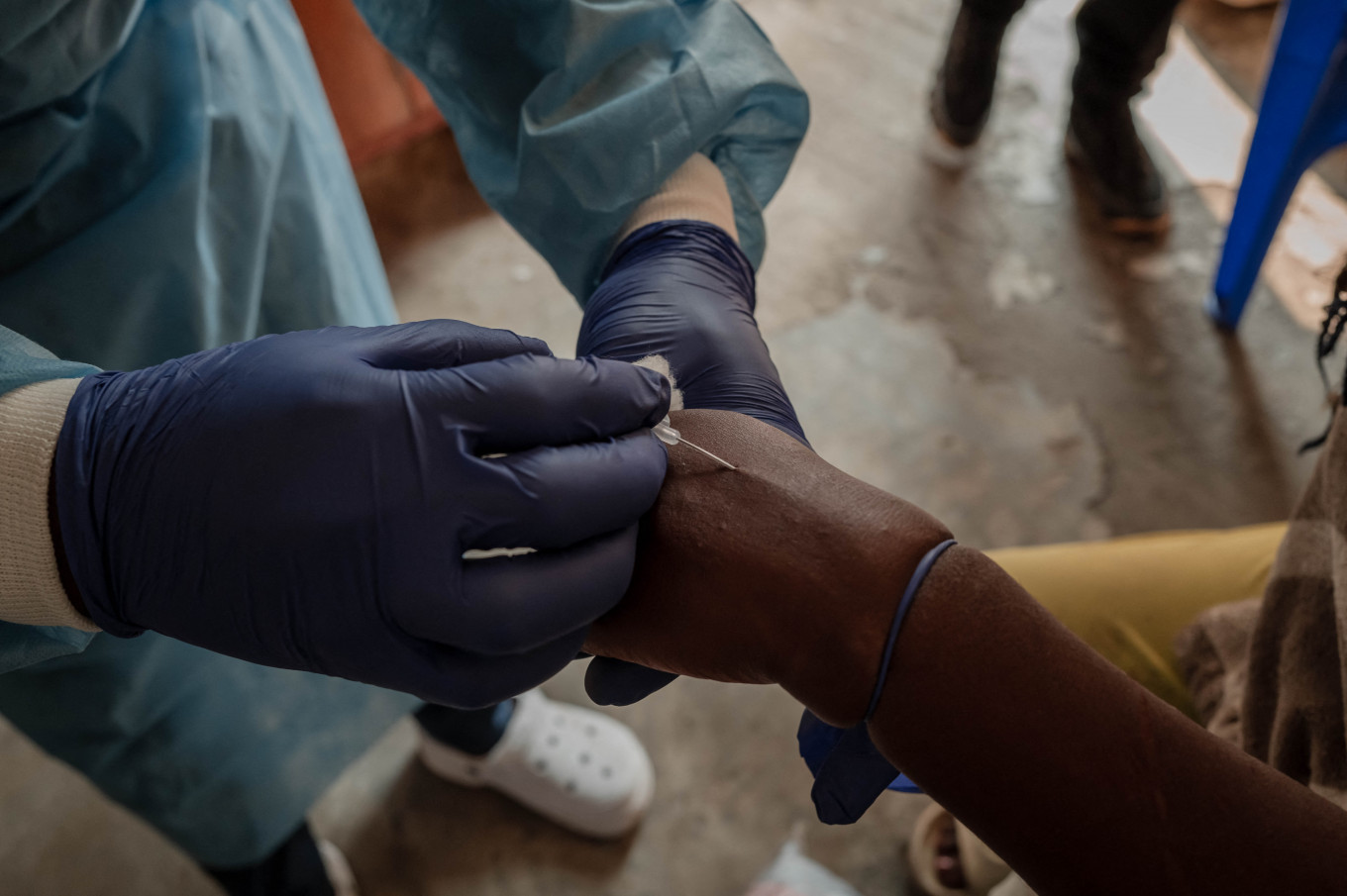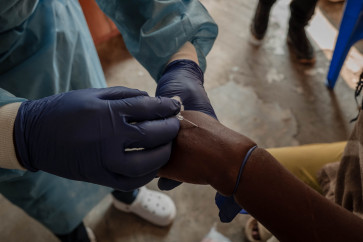Popular Reads
Top Results
Can't find what you're looking for?
View all search resultsPopular Reads
Top Results
Can't find what you're looking for?
View all search resultsFrom COVID-19 to mpox: Southeast Asia shows resilience amid health threats
Southeast Asia’s key economies — Singapore, Malaysia, and Indonesia — can draw valuable lessons from the COVID-19 pandemic to enhance Southeast Asia's strategies for managing mpox and ensuring socioeconomic resilience through robust cooperation.
Change text size
Gift Premium Articles
to Anyone
 A health worker takes a sample at an mpox treatment center at the Nyiragongo general referral hospital, north of the town of Goma in the Democratic Republic of Congo, on Aug. 16, 2024. The United Nations (UN) health agency is concerned by a rise in cases and fatalities in the DRC, as well as the spread to Burundi, Kenya, Rwanda and Uganda. (AFP/Guerchom Ndebo)
A health worker takes a sample at an mpox treatment center at the Nyiragongo general referral hospital, north of the town of Goma in the Democratic Republic of Congo, on Aug. 16, 2024. The United Nations (UN) health agency is concerned by a rise in cases and fatalities in the DRC, as well as the spread to Burundi, Kenya, Rwanda and Uganda. (AFP/Guerchom Ndebo)
O
n Aug. 13, the Africa Centres for Disease Control and Prevention (CDC) declared mpox a public health emergency of continental security. Three days later, the World Health Organization (WHO) swiftly declared mpox a public health emergency of international concern, meaning it could be the next global pandemic after COVID-19.
Mpox transmission is currently known to occur through close intimate contact with a sick person, but its one- to two-week incubation period means a sick person could be unaware of their infection. A rash on the hands, feet, chest, face or mouth, or near the genitals, is a sign of mpox.
Mpox poses significant material consequences, with Clade I (endemic to Central Africa) killing more patients than Clade II (endemic to West Africa and causing a global outbreak in 2022). As of Jan.11, 2023, reports indicated a cumulative total of 84,400 laboratory-confirmed mpox cases, including 76 deaths. In the meantime, Singapore reported a total of 21 confirmed cases of mpox, with the exception of an isolated case in 2019. By February 2023, 110 countries worldwide had reported mpox cases.
It is crucial for Southeast Asian authorities to remain vigilant without succumbing to panic. Southeast Asia’s proximity to regions like South Asia and interconnectivity with the Middle East, Europe and Africa increase the risk of mpox transmission to its population.
Yet the region strategically provides multiple entry points for cross-border movement of people and goods, and it is also one of the fastest-growing regions in terms of economy and population, creating tension for its policymakers to respond to the recurring virus outbreaks. Can the region learn its lesson from COVID-19 to tackle the mpox outbreaks?
Southeast Asia faced several challenges in addressing the COVID-19 pandemic, both as a region and as individual countries, revealing both strengths and weaknesses. One significant issue was the uneven capacity for surveillance, monitoring and data sharing of virus outbreaks across the region.
While some countries had more robust systems in place, others struggled with limited capabilities. This disparity highlighted the urgent need to expand public health infrastructure and invest in regional response capacity to ensure a more cohesive and effective approach to future pandemics.


















